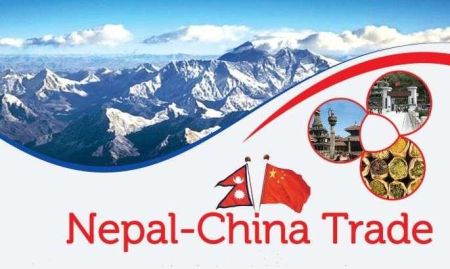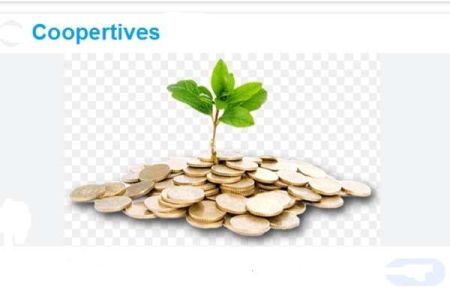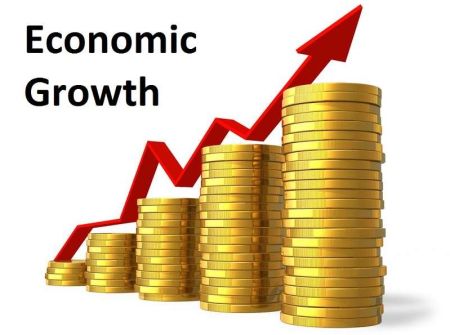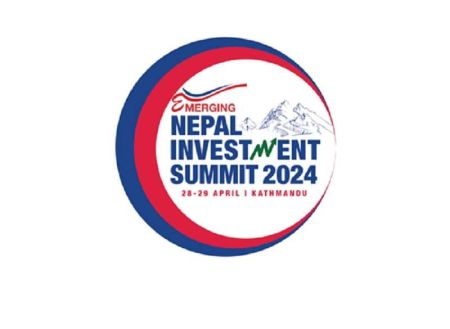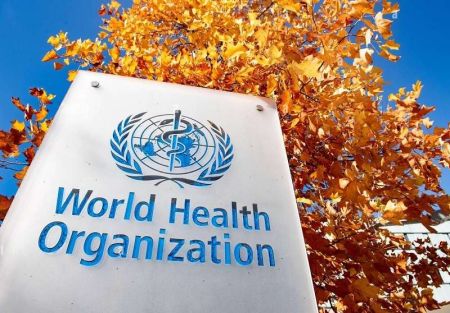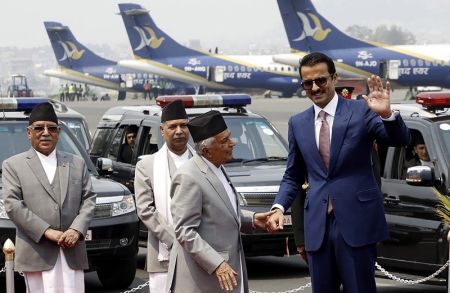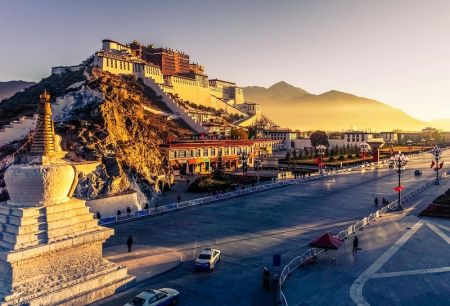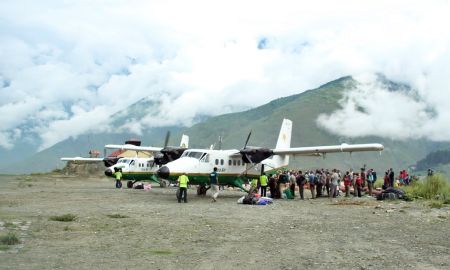World Bank Forecasts 3.8 % Economic Growth in 2014
The country will not regain strength in economic growth in 2014 despite a successful second Constituent Assembly (CA) election. The World Bank has estimated Nepal’s economic growth to be not more than 3.8 per cent in 2014, a marginal improvement compared to the 3.6 per cent growth rate in 2013.
The data of Global Economic Prospectus 2014 report released by the World Bank clearly showed that the country has still a long way to go to achieve the growth target set by the government. According to the latest monetary policy, the government aims to achieve 5.5 per cent economic growth in 2014.
(1).jpg)
The growth forecast by the bank is a blow to the government’s plan of achieving 7 per cent economic growth. The forecast also showed that the government’s plan of improving its status as the developing country from existing Least Developed Country (LDC) is an ambitious plan which is hard to achieve any time soon as the World Bank has projected 4.4 per cent growth rate for 2015 and 5.2 for 2016.
Experts, however, say that the country can do better than World Bank’s forecast if it aims at mobilizing more investment from the private sector. World Bank’s projection is based on the data of October 2013, said former finance secretary Rameshore Khanal. “The economic situation was better in December as the agriculture sector witnessed improvement including the production of crops.”
We can say the World Bank’s data has underestimated the country’s economic situation to some extent, he claimed. “The country can achieve around 4.5 per cent economic growth in 2014.” We must focus on our major sectors such as agriculture, tourism, water resource if we are to attain speedy economic growth, said economist Dr Chiranjibi Nepal.
Slower government expenditure – especially capital expenditure – despite timely monsoon that might boost agriculture growth, is still a big challenge for the country, he opined. “It is expected that the new government will bring policy to accelerate capital expenditure.”
Taking the private sector into confidence is the only way out to propel economic growth while policy stability and endorsement of essential laws is a must to boost the private sector’s confidence, according to Khanal. The banking sector is still reluctant to invest in hydro projects and other big projects, he said. The government should identify the problems of banks and foster an environment where all banks can invest in big projects which will help boost economic activities.
Invest in Service Sector: NRB Governor
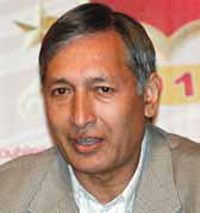 Governor of Nepal Rastra Bank (NRB), Dr Yuba Raj Khatiwada has asked the private sector for investment in the service sector. Speaking at an interaction programme organized by the Birgunj Chamber of Commerce & Industries (BiCCI), Dr Khatiwada said that due to capital flight in the health and education sectors, it has become necessary to invest in these sectors within the country.
Governor of Nepal Rastra Bank (NRB), Dr Yuba Raj Khatiwada has asked the private sector for investment in the service sector. Speaking at an interaction programme organized by the Birgunj Chamber of Commerce & Industries (BiCCI), Dr Khatiwada said that due to capital flight in the health and education sectors, it has become necessary to invest in these sectors within the country. “It has become necessary to invest in the country’s service sector including health and education to stop capital flight,” Dr Khatiwada said, “The investment in the service sector will make the economy strong.” He also opined that the country has the right environment for investment at present. He also claimed that liquidity in the banks was quite high. “Banks have more than Rs 100 billion which can be invested in different sectors,” he said adding that this is the right time for investment.
He also claimed that the scarcity of Indian currency in Nepal was because of the informal trade between the countries and the non-transparent customs evaluation. “We bring Indian currency worth Rs 5 billion annually. If all of our trade with India takes place through the formal channels, this much amount of Indian currency is enough,” he said.
Nepal Falls in Economic Freedom Ranking
(1).jpg) Nepal has fallen far behind than other Asian economies in terms of economic freedom, a latest global report revealed. According to the Index of Economic Freedom 2014, jointly published by the Heritage Foundation and The Wall Street Journal, Nepal ranked 149th among 178 countries globally. With a score of 50.1 points out of 100, Nepal was placed among the group of countries having low level of economic freedom. The index puts economies with score at the range of 50-59.9 in the ‘Mostly Unfree’ group.
Nepal has fallen far behind than other Asian economies in terms of economic freedom, a latest global report revealed. According to the Index of Economic Freedom 2014, jointly published by the Heritage Foundation and The Wall Street Journal, Nepal ranked 149th among 178 countries globally. With a score of 50.1 points out of 100, Nepal was placed among the group of countries having low level of economic freedom. The index puts economies with score at the range of 50-59.9 in the ‘Mostly Unfree’ group. Similarly, the country ranked 34th among 42 nations in the Asia-Pacific region. “Nepal’s score has decreased by 0.3 points with modest improvements in business freedom, monetary freedom, and the control of government spending outweighed by declines in investment freedom and freedom from corruption…its score remains far below world and regional averages” informed the report. According to the report, this year’s world average for economic freedom is 60.3 while the regional average is 58.3 (Asia- Pacific) and average of the free economies is 84.1. In 2012 and 2013, Nepal ranked 147th and 141st in the index.
The Index of Economic Freedom rates countries in 10 categories of economic performance such as rule of law, regulatory efficiency, limited government and open markets. Nepal was first graded in the 1996 Index, and its economic freedom score since then has been largely stagnant, declining overall by less than half a point. “Improvements in four of the 10 economic freedoms, including freedom from corruption, business freedom, monetary freedom, and trade freedom, have been more than offset by deterioration in other areas, particularly a 25-point decrease in investment freedom,” the report said.
Considered as a “mostly unfree” economy throughout its history in the Index, Nepal achieved its highest score in 2007. The report cited statist approach to economic management and development as a serious drag on business activity in Nepal. Likewise, it further mentioned that lack of transparency, corruption, and burdensome approval process impedes much-needed private investment and production in the country.
“Property rights are undermined by the inefficient judicial system, which is subject to substantial corruption and political influence,” it said. In the South Asia region (excluding Afghanistan), Nepal ranked lowest in the index. Regional giant, India ranked 120th. Sri Lanka was placed at 90th position followed by Bhutan (116th), Pakistan (126th), Bangladesh (131st) and Maldives (145th). Sri Lanka was the only South Asian country to achieve position in the group of ‘moderately free’ economy. China, the world’s second largest and Asia’s biggest economy, ranked 139th.
Hong Kong and Singapore finished first and second in the rankings for the 20th straight year followed by Australia, Switzerland, New Zealand, Canada, Chile, Mauritius, Ireland and Denmark. The world’s largest economy United States, ranked 12th in the index. North Korea, Cuba, Zimbabwe, Venezuela, Eritrea, Iran and Republic of Congo were the most unfree or repressed in terms of economic freedom. Among the 178 countries ranked, scores improved for 114 countries and declined for 59.






